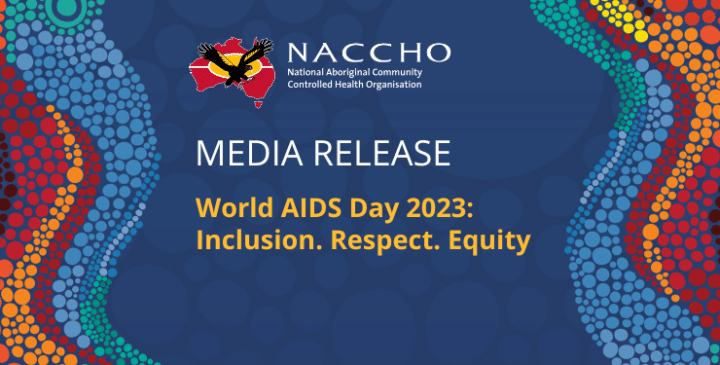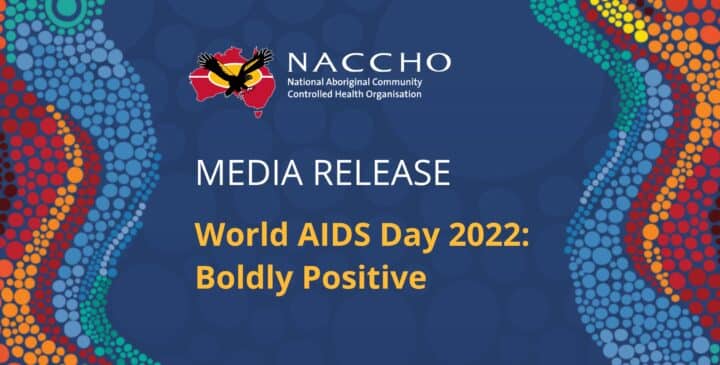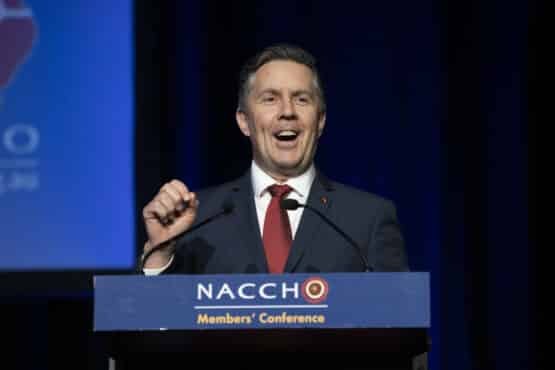

Aboriginal and Torres Strait Islander Advisory Group on COVID-19, 31 March 2020
In early March the Australian Government convened the
Aboriginal and Torres Strait Islander Advisory Group on COVID-19 (the
Taskforce) to develop and deliver a National
Management Plan to protect communities and save lives.
The Taskforce is co-chaired by the National Aboriginal
Community Controlled Health Organisation (NACCHO) and the Department of Health.
It includes leaders from NACCHO and their affiliates, Aboriginal Health
Services, state and territory public health representatives, the Australian
Indigenous Doctors Association and the National Indigenous Australian’s Agency
(NIAA) as well as Public Health Medical Officers (PHMOs) and communicable
disease experts. The taskforce has been meeting twice a week, with
out-of-session issues discussed and addressed daily.
The determined and coordinated effort by the Aboriginal and
Torres Strait Islander health sector has meant that the National Management
Plan will support the delivery of health care that is locally-led, holistic,
comprehensive, and culturally safe to the community, during the Coronavirus
pandemic.
A four-phase plan to
protect communities
Aboriginal and Torres Strait Islander Australians over the
age of 50 and those with a chronic condition are considered to be among the
group of Australians most at risk of Coronavirus. The National Management Plan adopts COVID-19 responses already
underway in Australia, but with specific operational guidance and tailoring
relevant for Aboriginal and Torres Strait Islander communities and how the
health sector can best respond in an effective and culturally safe way. The
Plan acknowledges that remote communities face additional challenges in
responding to Coronavirus.
The four phases of the National Management Plan include:
- Phase 1:
Preparedness: The taskforce has been engaging with stakeholders to ensure
culturally safe and consistent advice for Aboriginal and Torres Strait Islander
peoples by developing the guiding principles, context, key issues and targeted
action for planning, response and management for Coronavirus. Targeted
communication resources for Aboriginal and Torres Strait Islander Australians
have been developed and can be found here. - Phase 2:
Suspected or initial cases: Building on the preparedness phase, the
Taskforce has developed advice on a range of actions to prevent sustained
community transmission. - Phase 3: Outbreak
situations: Delivering an effective response to outbreaks in communities
will require an increased response, including the potential deployment of
mobile respiratory clinics. - Phase 4: Stand-down
and evaluation: When the threat of
Coronavirus has reduced and risk to communities is lowered, the Australian
Government will support communities in their recovery. Lessons learned from
this pandemic will be incorporated into future National Pandemic Planning.
This plan was endorsed by the Australian Health Protection
Principal Committee (AHPPC) on Friday
27 March and came into effect on Tuesday 31 March 2020.
Additional action to further protect and
support communities
The Australian and State
and Territory Governments, working hand-in-hand with Aboriginal and Torres
Strait Islander communities, have put in place a number of other measures to
help and support communities during the Coronavirus pandemic.
- Minimising
remote communities’ exposure to Coronavirus: In addition to the National
Management Plan, the Government is working to minimise the exposure of
Coronavirus to remote and very remote communities. Access to these communities
has been restricted to protect community members from the spread of
Coronavirus. Those returning to communities will be required to self-isolate
for 14 days in line with health guidelines.
More: https://www.niaa.gov.au/covid19-remote-communities - Biosecurity
Restrictions are in place now in WA, NT, Qld (including the Torres Strait)
and PNG. Land Councils have stopped issuing new travel permits to
communities. Communities have taken
their own action to restrict visitors to communities. All non-essential visitors to remote communities have ceased. Taskforce
members are working with mining companies located in close proximity to
communities to ensure there is minimal risk of transmission. - In the event of positive Coronavirus cases in remote
communities, provisions have been made to evacuate
early cases to enable an effective response and limit exposure to other
community members. - Working towards opening GP-led respiratory clinics to provide advice and health care to
people with mild to moderate COVID-19 symptoms while reducing the pressure on
hospitals and the risk of transmission by visits to regular GP clinics. Sites
for the respiratory clinics, which will include some Aboriginal Community
Controlled Health Services (ACCHS), are currently being determined and progressively
rolled out. - The Australian Government, working with Aboriginal and
mainstream primary care services, is expanding telehealth (phone and video calls with your health care provider)
to allow eligible patients to access both Coronavirus & ongoing care when
they most need it and protect both patients and health care providers from the
risk of infection. - Infectious
Control eLearning courses have been developed for workers in the health
care sector and freely available to all with caring responsibilities. Specific
resources for Aboriginal Health Workers, Practitioners, and specific settings
such as remote communities are being developed. Access the training here: https://covid-19training.gov.au/ - Community Clinic
Preparedness: All Aboriginal community clinics have heightened awareness of
Coronavirus risk and many clinics across Australia are working in preparedness
for Coronavirus. The Australian Government, working with NACCHO, is providing
funding to Aboriginal Community Controlled Health Services and local health
clinics across 110 communities for preparedness activities. - The taskforce continues to monitor the ongoing need for
personal protective equipment (PPE) for
clinicians working in communities across Australia. Taskforce members from the
ACCHS sector provide strong advocacy on this issue, regularly reporting
identified issues for action. - Working to rapidly establish and increase our capacity
to perform quick testing in remote
communities. - The taskforce meets with the Communicable Diseases
Network and all other Government Agencies to ensure the strongest approach to
protect communities.
More information can be found here
Messages to share
Keeping your Mob safe
Everybody is at risk of contracting COVID-19 so you need to
protect yourself and others in your community. Especially elders.
We all need to work together to keep our communities safe
and stop the spread of the virus. Government action alone is not enough.
As the Government is undertaking a broad range of actions to
support Aboriginal and Torres Strait Islander peoples and communities, we can
all act to protect and save lives by doing three simple things:
- Staying healthy and strong with good hygiene
- Keep your hands clean. Wash your hands with soap and
water (where possible) for at least 20 seconds after you cough or sneeze, go to
the toilet, and before you make any food.
- Cough or sneeze into your arm or inside of elbow, not
your hands.
- Put your tissues in the bin after you use them and wash
your hands after.
- Don’t touch your face.
- Clean surfaces often, such as door handles, kitchen and
bathroom.
- Don’t hug or shake hands with people.
- If you are sick with a fever, cough or sore throat and
feel tired or are having trouble breathing, keep away from people and family in
the community and seek medical help.
- Keep your hands clean. Wash your hands with soap and
- Protecting your communities
and Elders- Don’t travel to places in your community, or other
communities, unless you have to.
- Stay at home and away from other people as much as you
can. If you are around people, try to stay two metres away from them. That’s
two big steps.
- If you use medication, make sure keep taking it to stay
as healthy as possible.
- Don’t share cups or water bottles
- Don’t smoke or share smokes with other people.
- Get a flu shot and protect yourself and your family
from the flu too.
- Don’t travel to places in your community, or other
- Staying connected
- It’s important we stay connected with family, friends
and community.
- Call people for a yarn on the phone.
- Talk about the community and check if they are OK.
- Talk about the virus and how to stop the spread.
- Connect to family and friends on social media.
- Share your tips on social media #KeepOurMobSafe
- It’s important we stay connected with family, friends
By taking action together we will slow the spread, take the
pressure off our doctors and nurses and ultimately save lives – keeping your
mob safe and well.
Where can I go for help?
Keep safe by knowing the symptoms of Coronavirus. The most
common symptoms are fever, sore throat, cough, tiredness and difficulty
breathing.
If you or are a family member are experiencing these
symptoms, or you are concerned about their health, you can:
- Call your local Aboriginal
Medical Service, or someone you trust in the community if you feel unwell. - Call the 24-hour National
COVID-19 Hotline can 1800 020 080. - Visit www.niaa.gov.au for
information about remote community closures. - Check out the newest
information on www.health.gov.au
Additional Resources
National resources:
Department of Health https://www.health.gov.au/
Australia.gov.au www.aus.gov.au
National Indigenous Australians Agency Coronavirus
Information https://www.niaa.gov.au/covid19-remote-communities
Indigenous.gov.au https://www.indigenous.gov.au/
National Aboriginal Community Controlled Health Organisation
https://www.naccho.org.au/
NACCHO Coronavirus Information https://www.naccho.org.au/home/aboriginal-health-alets-coronavirus-covid-19/
State and Territory
Resources:
Queensland
https://www.qld.gov.au/health/conditions/health-alerts/coronavirus-covid-19
Consumers: https://assetlibrary.health.qld.gov.au/share/9EDA794F-28B6-41E3-8F545AE24E6A30A6/
Health care providers: https://assetlibrary.health.qld.gov.au/share/F505EB63-5220-44A4-BA90E22602634213/
Queensland Aboriginal and Islander Health Council https://www.qaihc.com.au/
New South Wales:
https://www.health.nsw.gov.au/Infectious/diseases/Pages/covid-19-latest.aspx
Aboriginal Health and Medical Research Councilhttps://www.ahmrc.org.au/
Victoria:
https://www.dhhs.vic.gov.au/victorian-public-coronavirus-disease-covid-19
Victorian Aboriginal Community Controlled Health
Organisation https://www.vaccho.org.au/
Northern Territory:
https://health.nt.gov.au/health-alerts/novel-coronavirus-covid-19
Aboriginal Medical Services Alliance Northern Territory https://www.amsant.org.au/
South Australia: https://www.sahealth.sa.gov.au/wps/wcm/connect/public+content/sa+health+internet/health+topics/health+topics+a+-+z/novel+coronavirus
Aboriginal Health Council of South Australia Ltd https://ahcsa.org.au/
Tasmanian Aboriginal Centre Inchttps://tacinc.com.au/
Western Australia:
https://www.wa.gov.au/government/coronavirus-covid-19
https://healthywa.wa.gov.au/Articles/A_E/Coronavirus/Coronavirus-information-for-Aboriginal-people
Aboriginal Health Council of Western Australiahttps://www.ahcwa.org.au/
Australian Capital Territory:
https://health.act.gov.au/about-our-health-system/novel-coronavirus-covid-19
Winnunga Nimmityjah Aboriginal Health Servicehttps://www.winnunga.org.au/

